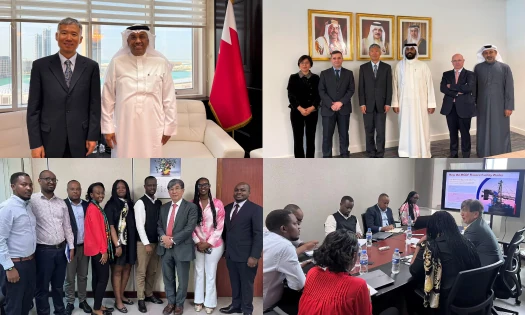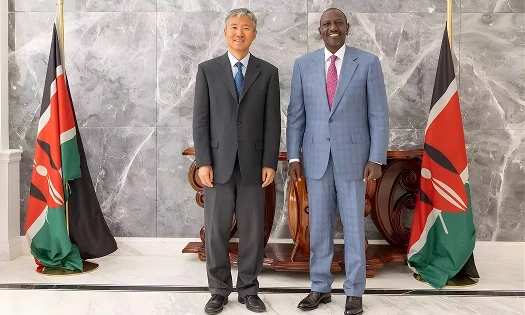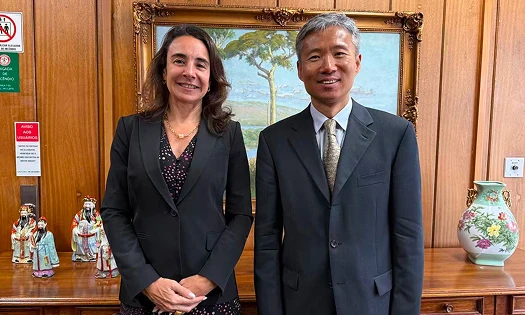Lessons for managing fiscal risks and ensuring the fiscal affordability of public-private partnership (PPP) infrastructure projects were spotlighted during the second virtual workshop of the 2025 PPP “hot topics” series on 7 May. The series is co-organized by the Multilateral Cooperation Center for Development Finance (MCDF), Egypt Ministry of Finance, African Development Bank, Asian Development Bank, World Bank-hosted Public-Private Infrastructure Advisory Facility (PPIAF), and World Association of PPP Units and Professionals (WAPPP).
During the second workshop in the series, PPP experts from governments, multilateral development banks, and development partners explored fiscal commitments in the current environment of high indebtedness levels, contingent liabilities arising from PPPs, and the International Monetary Fund and World Bank’s Public-Private Partnerships Fiscal Risk Management Tool (PFRAM) for assessing the fiscal implications of PPPs.
To watch the workshop’s overview presentation on PFRAM, click here
To see the full session and related materials, visit MCDF’s digital platform, JIGSAW
In his presentation on PFRAM, Mr. Mikel Tejada Ibañez of PPIAF (World Bank) said PPP structuring is a careful balance of public-private risk allocation and that PPP fiscal management frameworks must be part of overall PPP project frameworks. He also noted the importance of operational capacity building, practical fiscal risk modeling, and considering the fiscal impacts of exogenous shocks.
Ms. Eunice Ajambo of the United Nations Economic Commission for Africa shared its report on fiscal risks in PPPs in Africa. She highlighted effective risk mitigation strategies and approaches described in the report, including sound project preparation, laws, oversight institutions, and fiscal accounting and reporting.
The World Bank’s Ms. Elena Timusheva discussed the findings of a PPP fiscal risk management study on post-COVID-19 pandemic lessons learned. Among them are the need for methodological guidance and tools to assess fiscal costs and risks, a central budget authority with a mandate to evaluate fiscal risks, and both adequate accounting during the lifetime of a PPP transaction and funding to tackle direct and indirect contingent liabilities.
The workshop participants agreed that PPP infrastructure projects in all countries are prone to fiscal management gaps, but that experiences across regions can inform the establishment and operation of solid contingent liability management frameworks.
Ms. Christine Ng’ang’a, Director of Origination and Structuring at Kenya’s PPP Directorate, discussed her country’s PPP program and tools, including a project preparation facility to promote transport PPP quality. She said that Kenya’s National Treasury analyzes the budgetary implications and affordability of each project to better manage fiscal risks. The country does not yet have a cap for fiscal risks, but it carefully tracks each transaction, she added.
Ms. María Paula Vargas, Director of Fiscal Risks at Peru’s Ministry of Economy and Finance, underscored the value of contingent liability analysis for controlling PPP costs and detailed examples of contingent commitments. They include minimum revenue guarantees for the private party, as well as early PPP contract termination, renegotiation, and disputes.
Philippines PPP Center Deputy Executive Director, Mr. Jeffrey Manalo, described how the Center has expanded its work to cover fiscal risks and contingent liabilities follow up via a national and sub-national PPP database. Drawing upon lessons learned, he discussed imperatives such as early evaluation of fiscal risks, implementing agency risk management plans and capacity building, clear mediation mechanisms, and hiring independent advisors to help assess PPP performance.
“High-quality PPP infrastructure depends greatly on ensuring the management of the financial and fiscal risks is handled well from the project preparation stage through implementation,” said Dr. Ede Ijjasz, Senior Advisor to MCDF’s CEO and the workshop’s technical lead and moderator. “Spotlighting standards and good practices for doing so through partnerships is at the core of MCDF’s mandate,” he concluded.
The 2025 PPP hot topics workshop series will continue on 21 May with a session on transport PPP innovation. The final session on 9 or 10 June will look at ways to build the bankability of PPPs.
Contact
David Hendrickson
Senior Communications Officer
Mobile: +86 185 0114 6758
david.hendrickson@themcdf.org







